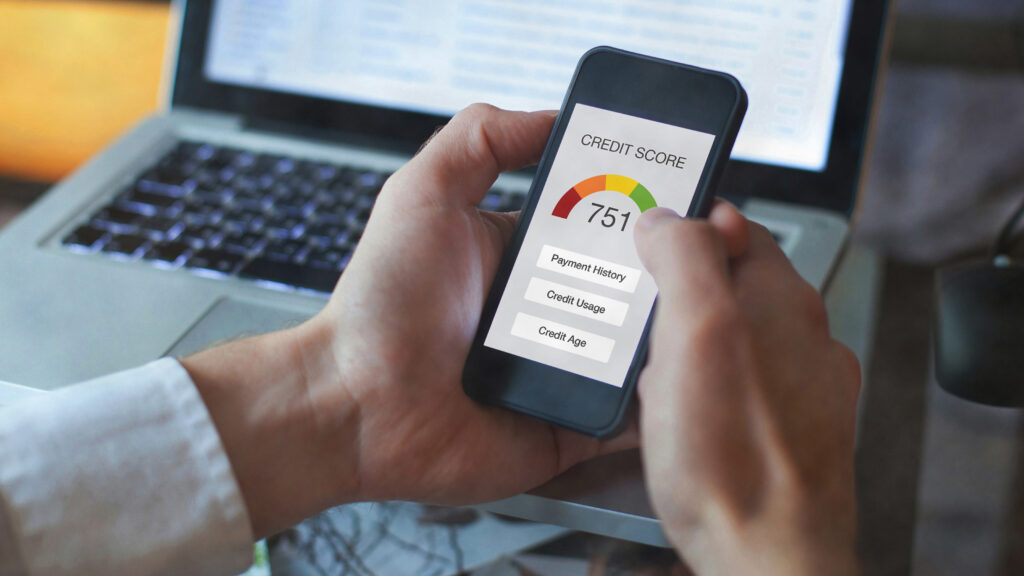Understanding Credit Scores
Whether you can afford these loans and their terms are determined by your credit score. Your credit score is used to assess loan applications such as personal loans, auto loans, and home mortgages. Homeowners and renters both need to have good scores.
850credit is one of the best credit repair companies in the United States. Thousands of people have used their services to restore their good reputations and scores! In 2022, the ultimate goal is to help you achieve all of your dreams, from buying a home to getting lower rates on any loan you may be eligible for.
You will learn everything you need to know about this and how it works. Feel free to read our customers’ reviews.
Depending on the score you have, you will be able to borrow a certain amount and repay it for a certain period. If it is high, you will have a lower monthly payment and a better interest rate. Because your credit score greatly influences your ability to get a low-interest rate loan, it is important to know what determines it. You can improve this by knowing what determines it and planning accordingly. Financial literacy is the key to improving credit scores.
The term “credit score” is used often, but what does it mean? This is a number that represents your financial reputation. It’s calculated by looking at the information in your credit report and analyzing how you have handled debts over time.
Visit our Website and get started today with a FREE Credit Repair Consultation or Call Us at (312) 978-7527

9 Questions That Can Help You Understand What Your Credit Score Means
1. What Is A Credit Score?
FICO scores are preferred by the vast majority of lenders. This type of score is used by more than 80% of banks in the United States. Equifax, TransUnion, and Experian, the three main credit bureaus, usually give you separate and distinct scores. Each bureau keeps a file on you that contains the information they need to calculate the scores. Your FICO® score changes when the information saved in your credit file changes.
You may have gone car shopping one weekend and asked several dealerships if you qualified for the cars they had on their lot. Your bank may have offered you a new credit card. During your mall visit, you may have applied for credit cards at two department stores. You may be in the process of buying a home. Your report could be affected.
2. What Is Considered A Good Credit Score?
Are you aware of your financial standing? You must have a good financial standing. This is because a good score can mean a huge difference in the interest rate you will pay on all the loans you are carrying. This is whether they are mortgages and home equity loans, auto loans, or credit cards. To make credit work for you, you must know what is considered good financial standing.
3. What Is Considered A Bad Credit?
Having bad credit means that you have too many delinquencies and/or late payments on your record. If this is the case for an individual with several negative marks in their report then they might very well be considered to have poor or bad credit.
Having any derogatory items on your report will harm your score. In addition, if you are unable to repay debt as agreed upon then the creditor may take legal action against you for repayment of that amount owed.
4. What Is Considered A “Poor” Credit Score?
Individuals who have delinquencies and/or late payments might be considered poor when it comes to their scores. This means that they have a poor score if they are unable to repay debt as agreed upon, resulting in the creditor taking legal action against you for repayment of what is owed.
People with low scores can often find themselves paying more than those who pay on time and maintain good credit over the years. If your goal is to save money, then it is in your best interest to pay card bills on time. This will help you build and maintain a good score. If you are looking to purchase anything that requires financing, then it is in your best interest to pay off debts on time as well.

5. How Can My Score Affect My Credit?
You will be able to get the best interest rate if you have a score between 720 and 850, which is considered a perfect score. A 300 score would be the lowest possible. Below is a list of scores from high to low credit risk:
Credit Score Range
- 800 – Excellent Credit
- 750-800 – Excellent Credit
- 720-750 – Average to Excellent Credit
- 690-720 – Good Credit
- 620-690 – Fair Credit
- 620 – Poor Credit Risk
- Below 620 – Don’t Even Try
6. Your credit score is affected by what factors?
To establish – or maintain – responsible credit behaviors, you should keep the following behaviors in mind:
- Keep your accounts paid on time. In addition to late or missed payments on cards, late or missed payments on other accounts, such as cell phones, can be reported to the bureaus. Your score may be affected. The lender should be contacted as soon as possible if you are having trouble paying a bill. Even if you dispute a bill, don’t skip payments.
- Be sure to repay your debts quickly.
- Maintain a low card balance. Your score may suffer if you carry a balance higher than your limit.
- Only apply for credit when necessary. Your score may be negatively impacted if you apply for multiple credit accounts in a short time frame.
- Monitor your reports regularly. Make sure your account information is accurate and that your personal information is correct by requesting a free copy of your report. Every 12 months, you’re entitled to a free copy of your report from each of the three nationwide credit bureaus. A copy of your reports can be obtained from one every four months, so you can stay on top of them at all times. You cannot affect your score by checking your report or score.
7. What Is The Difference Between A High and Low Credit Score?
If you have a low score, then lenders assume that you will have difficulty paying them back on time. If you apply for credit, you may be charged a higher interest rate or have your application denied.
You may be able to get a loan at a better interest rate if your score is in the high range. The same is true for mortgages as well. You can not only save hundreds of dollars a year by getting a lower interest rate on your mortgage, but you will also save thousands of dollars over the life of the loan. Therefore, it is in your best interests to have the highest score possible when applying for a mortgage loan.
You may have heard of or read about something known as a FICO® score. How does it work? One of the most well-known rating scores in the financial industry is the FICO® score, which is named after the company that initially developed the rating system.
Although each credit reporting agency uses the same scoring model, each agency has its name for the scores it uses, as described above. A Beacon model is used by Equifax, an Emperica model by TransUnion, and an Isaac model by Experian.

8. What is an Excellent Credit Score?
An excellent score is considered to be anything over 780. Individuals with scores of 780 or higher are generally rewarded by lenders, receiving better interest rates on loans and lower costs for many other types of services, such as insurance.
9. What is my credit score?
You can easily find out what your score is by checking with one of the three major credit reporting agencies, Equifax Canada (formerly Trans Union), Experian Canada, and Call Credit. They all offer free online access to this important rating.
You can go to any one of these sites and get your score. The higher the number, the better it is for you, because lenders will see that as a positive thing when considering whether or not they should lend you money.
It’s important to know what your score means, how it is calculated, and the factors that affect the number. If you want a healthy score you need to make sure all of these points are addressed for you to have an excellent rating. What does my current score mean?
Your current score can help determine if someone will be extended more favorable rates on loans or other financial products by lenders, which could impact their ability to purchase homes or cars.
The goal is not just about high numbers but rather avoiding any serious damage which would lead them down a bad path with no way out. This blog post has given some insight into understanding this complex yet simple concept so now it’s time for us to take action.
Get started today with a FREE Credit Repair Consultation or Call Us at (312) 978-7527


